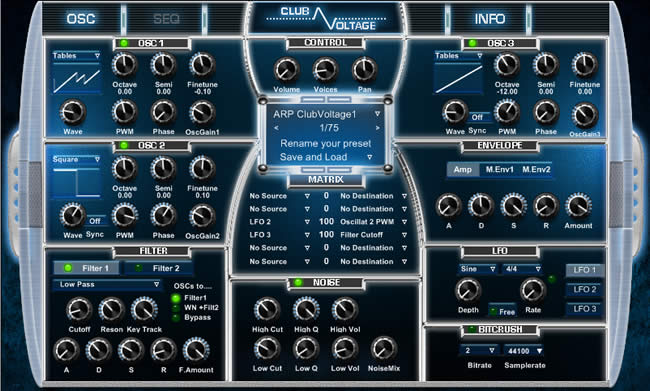I'm looking to set up another computer alongside my main computer to slave all my CPU-draining VST instruments and effects. I'm currently using Cubase 5, but looking to upgrade to 6 soon, and would like to utilise the VST System Link option. After doing some Internet research, I know System Link will only work with certain audio interfaces. I have a budget of around £350$500 to buy the two interfaces, and I'm wondering what you could advise me to get for that? It would be great if you could give me some information on setting up and using System Link, as there is very little on the Internet to help!
George Morton via email
Cubase 5 Vst Instruments Plugins Plugin
Rightly so, Virtual Studio Technology (VST) plugins or VST instruments are an essential element every music production enthusiast needs to craft and hone their soundscape with to add rich audio effects and get that solid final mix. The 200 Best Free VST Plugins Ever. Free VST Plugins are one of the most exciting things about mixing.
SOS Reviews Editor Matt Houghton replies: Personally, I wouldn't recommend using System Link, as there are alternatives around that allow you to link two machines without requiring a second audio interface.
The one I have most experience with is FX Teleport, by FX-Max (www.fx-max.com/fxt). There's a free demo that you can try using any type of network connection, including USB and Firewire, but if you decide to use it you'll get better results from a faster network connection, such as Gigabit Ethernet. The one additional piece of hardware I'd recommend investing in is a KVM box, which allows you to use a screen, mouse and keyboard with multiple computers. That's pretty much essential when working in this way. I'd thoroughly recommend FX Teleport if another computer is the answer to your problems.

Before you invest, though, do make sure that it is more CPU power that you need. Availability of memory, or hard-drive loading, could also be a cause of problems. It could be that, for example, results are limited by your hard-disk performance, particularly if you are running an operating system, audio files and streaming sample instruments all from the same disk, in which case running those three things from separate drives might help.
Memory is often not a huge problem area, although it can be an issue on some 32-bit systems, particularly where you have a lot of hardware installed. First, there's a maximum of 4GB available in Windows XP 32-bit, of which only 2 or 3 GB is available to each application — and all of the plug-ins running within Cubase count as one programme! On my old XP system, I had 4GB of memory installed, but had only 2.3GB available to applications, due to the way in which Windows allocated memory address space to my various DSP cards.
Cubase 5 Vst Instruments Plugins Vst
In 64-bit versions of Windows, this limitation is removed. You might run into problems with older 32-bit plug-ins if you try to run the 64-bit version of Cubase, but in my current system I'm running 32-bit Cubase on Windows 7 64-bit, with the JBridge utility allowing me to run 64-bit plug-ins (such as Kontakt) in their own address space.
If you haven't tried it yet, I'd also suggest experimenting with Cubase's Freeze facility, which allows you to 'freeze' audio and instrument tracks. This essentially performs a temporary render of those tracks and unloads any plug-ins to free up precious computer resources. You can unfreeze at any time if you need to go back and tweak, and even when frozen you still have access to features such as level and pan automation.
Finally, another option is to consider upgrading to a modern multi-core PC. That might not be quite within your budget, but if you've not upgraded for a few years, you'll be amazed at how much more you can do in a single system. One advantage is that you'll only have the noise of one machine to put up with, because remember that the more computers you have running, the greater the sound of whirring fans will be in your studio!